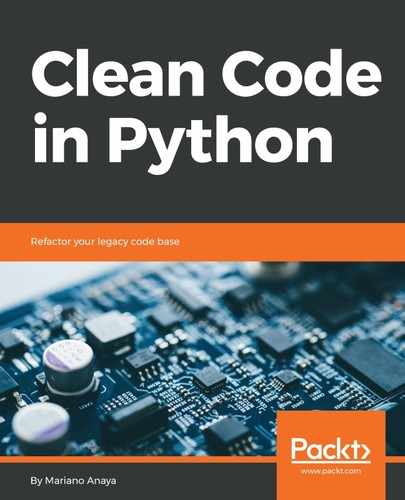We are already familiar with the built-in enumerate() function that, given an iterable, will return another one on which the element is a tuple, whose first element is the enumeration of the second one (corresponding to the element in the original iterable):
>>> list(enumerate("abcdef"))
[(0, 'a'), (1, 'b'), (2, 'c'), (3, 'd'), (4, 'e'), (5, 'f')]
We wish to create a similar object, but in a more low-level fashion; one that can simply create an infinite sequence. We want an object that can produce a sequence of numbers, from a starting one, without any limits.
An object as simple as the following one can do the trick. Every time we call this object, we get the next number of the sequence ad infinitum:
class NumberSequence:
def __init__(self, start=0):
self.current = start
def next(self):
current = self.current
self.current += 1
return current
Based on this interface, we would have to use this object by explicitly invoking its next() method:
>>> seq = NumberSequence()
>>> seq.next()
0
>>> seq.next()
1
>>> seq2 = NumberSequence(10)
>>> seq2.next()
10
>>> seq2.next()
11
But with this code, we cannot reconstruct the enumerate() function as we would like to, because its interface does not support being iterated over a regular Python for loop, which also means that we cannot pass it as a parameter to functions that expect something to iterate over. Notice how the following code fails:
>>> list(zip(NumberSequence(), "abcdef"))
Traceback (most recent call last):
File "...", line 1, in <module>
TypeError: zip argument #1 must support iteration
The problem lies in the fact that NumberSequence does not support iteration. To fix this, we have to make the object an iterable by implementing the magic method __iter__(). We have also changed the previous next() method, by using the magic method __next__, which makes the object an iterator:
class SequenceOfNumbers:
def __init__(self, start=0):
self.current = start
def __next__(self):
current = self.current
self.current += 1
return current
def __iter__(self):
return self
This has an advantage—not only can we iterate over the element, we also don't even need the .next() method any more because having __next__() allows us to use the next() built-in function:
>>> list(zip(SequenceOfNumbers(), "abcdef"))
[(0, 'a'), (1, 'b'), (2, 'c'), (3, 'd'), (4, 'e'), (5, 'f')]
>>> seq = SequenceOfNumbers(100)
>>> next(seq)
100
>>> next(seq)
101
